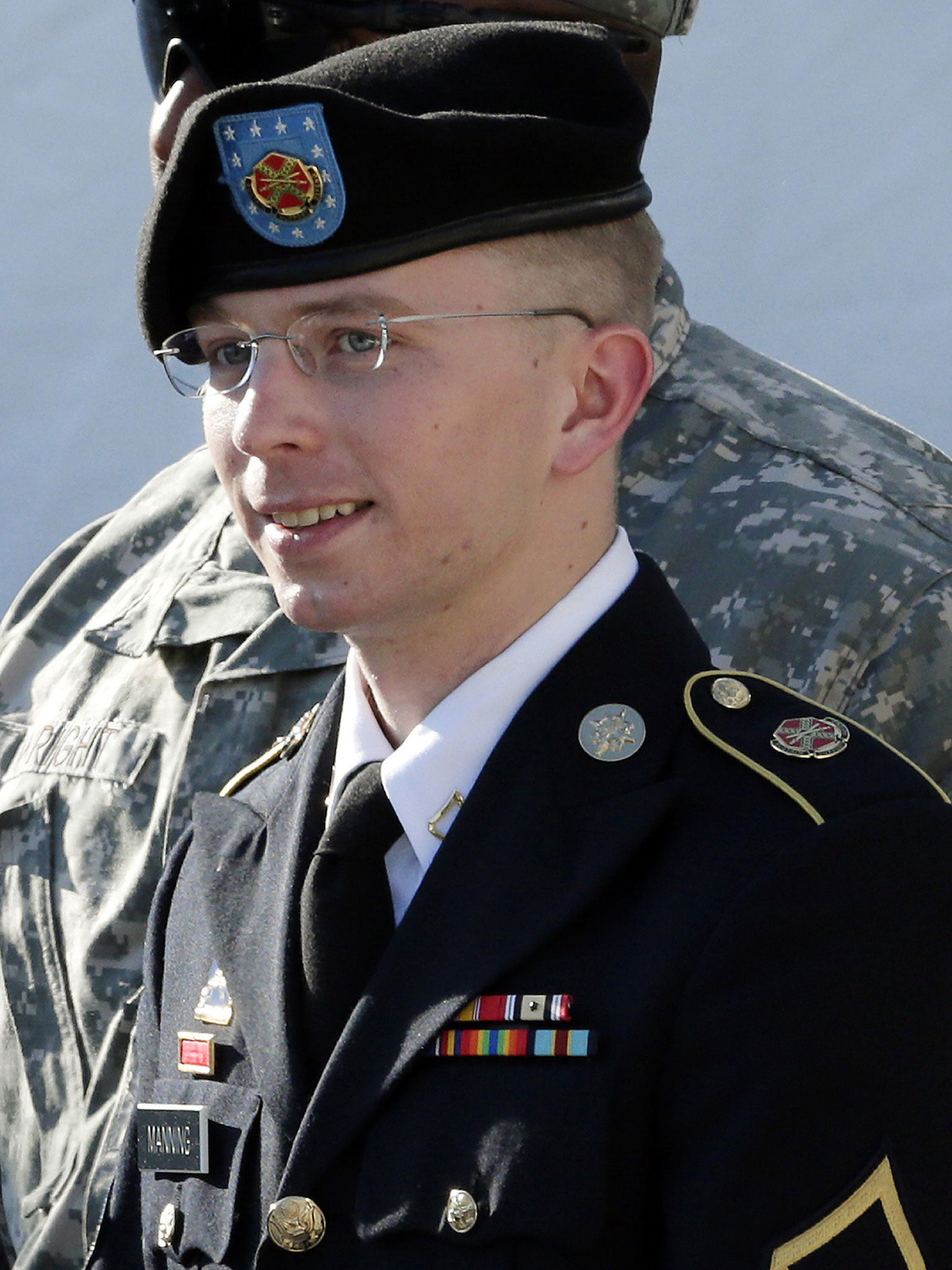Bradley Manning leaked data to WikiLeaks 'to gain notoriety that he craved'
The former intelligence analyst could face life in prison for the biggest leak of classified information in US history

Your support helps us to tell the story
From reproductive rights to climate change to Big Tech, The Independent is on the ground when the story is developing. Whether it's investigating the financials of Elon Musk's pro-Trump PAC or producing our latest documentary, 'The A Word', which shines a light on the American women fighting for reproductive rights, we know how important it is to parse out the facts from the messaging.
At such a critical moment in US history, we need reporters on the ground. Your donation allows us to keep sending journalists to speak to both sides of the story.
The Independent is trusted by Americans across the entire political spectrum. And unlike many other quality news outlets, we choose not to lock Americans out of our reporting and analysis with paywalls. We believe quality journalism should be available to everyone, paid for by those who can afford it.
Your support makes all the difference.By transmitting quantities of sensitive and secret material to WikiLeaks in 2010, an “arrogant” Bradley Manning was also dumping it into the “hands of the enemy”, a military prosecutor contended at the start of the US Army private’s court martial at Fort Meade in Maryland on Monday.
At the heart of opening statements by the prosecution as the non-jury court martial finally got under way was the contention that Pte Manning, 25, was aware that he would cause harm to the United States when he downloaded reams of classified documents and other materials and relayed it to the anti-secrecy website.
“This is a case about a soldier who systematically harvested hundreds of thousands of documents from classified databases and then dumped that information on to the internet into the hands of the enemy,” Captain Joe Morrow told the judge presiding over the court martial, Army Colonel Denise Lind. He took these actions, Capt Morrow added, “to gain the notoriety he craved”.
Offering an additional assertion that seemed at odds with the meek demeanour of the young man in his dark green uniform sitting at the defence table, Capt Morrow went on: “This is a case about what happens when arrogance meets access to sensitive information.”
But lead defence lawyer David Coombs countered that his client, who had been posted to a base near Baghdad as an intelligence analyst, had been “young, naive but good intentioned” and “believed that if the public had access to the information it would make the world a better place”. Mr Coombs said that Pte Manning had filtered out some documents he thought might hurt his country. At the time of the leaks, moreover, he had a “very internal private struggle with his gender”, the lawyer added.
Incarcerated for three years since his arrest in May 2010, Pte Manning admitted last February to mining and leaking the secret materials and pleaded guilty to lesser charges which could entail his being put behind bars for 20 years. While the pleas were accepted by Judge Lind, the prosecution opted to press forward with 21 additional charges. If he is convicted on the most serious among them, he could be imprisoned for life without the chance of parole.
Expected to last for three months, the trial will see a parade of more than 100 witnesses testifying for the prosecution. Judge Lind has already indicated that where testimony might veer into areas of national security, she will eject the public and the press. Even when media is allowed, only 10 seats have been assigned for them in the sparsely furnished courtroom.
Among the most anticipated of the witnesses is a member of the Seal team that killed Osama bin Laden. Identified so far only as “John Doe”, he is expected to say that his team found three digital items in the terror leader’s hide-out with content lifted from WikiLeaks and therefore traceable to Pte Manning. It is not yet clear whether the individual will testify in person in the courtroom or via a written affidavit.
In offering his guilty pleas in February, Pte Manning said he had been appalled by the “bloodlust” of US policy in Iraq and Afghanistan and had intended to spark deeper public debate about the wars. Yesterday he spoke only briefly at the start in response to procedural questions from Judge Lind, including whether he was content not to have a jury. “Yes, your Honour,” he replied.
Despite morning rain, there was a small circus of Manning supporters outside the main gates of the camp as well as a white van bearing the WikiLeaks brand on its panels. Among others who appeared at the base was Cornel West, the Princeton professor and political philosopher, to show solidarity with the defendant.
“I’m here to have solidarity with my devoted brother Bradley Manning,” West said outside the courtroom. “I’m going to be here as often as I can. My spirit will be here. He is a courageous young brother.”
Also at Fort Meade, WikiLeaks stationed a truck in the parking lot with a sign reading: “Mobile information collection unit.”
Bradley Manning also counts among his supporters documentary filmmaker Michael Moore, musician Graham Nash, actor John Cusack and Pentagon Papers leaker Daniel Ellsberg.
Join our commenting forum
Join thought-provoking conversations, follow other Independent readers and see their replies
Comments